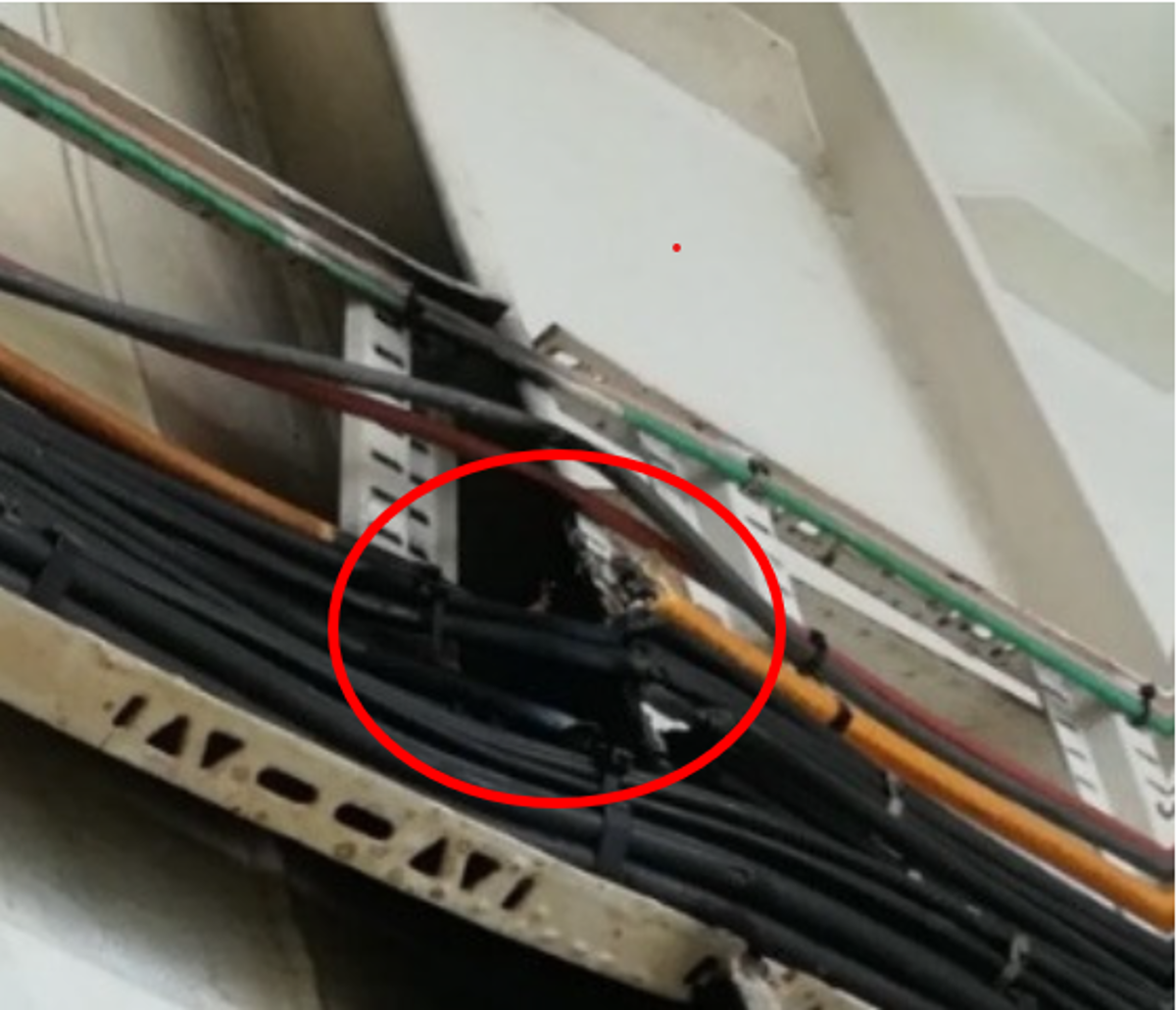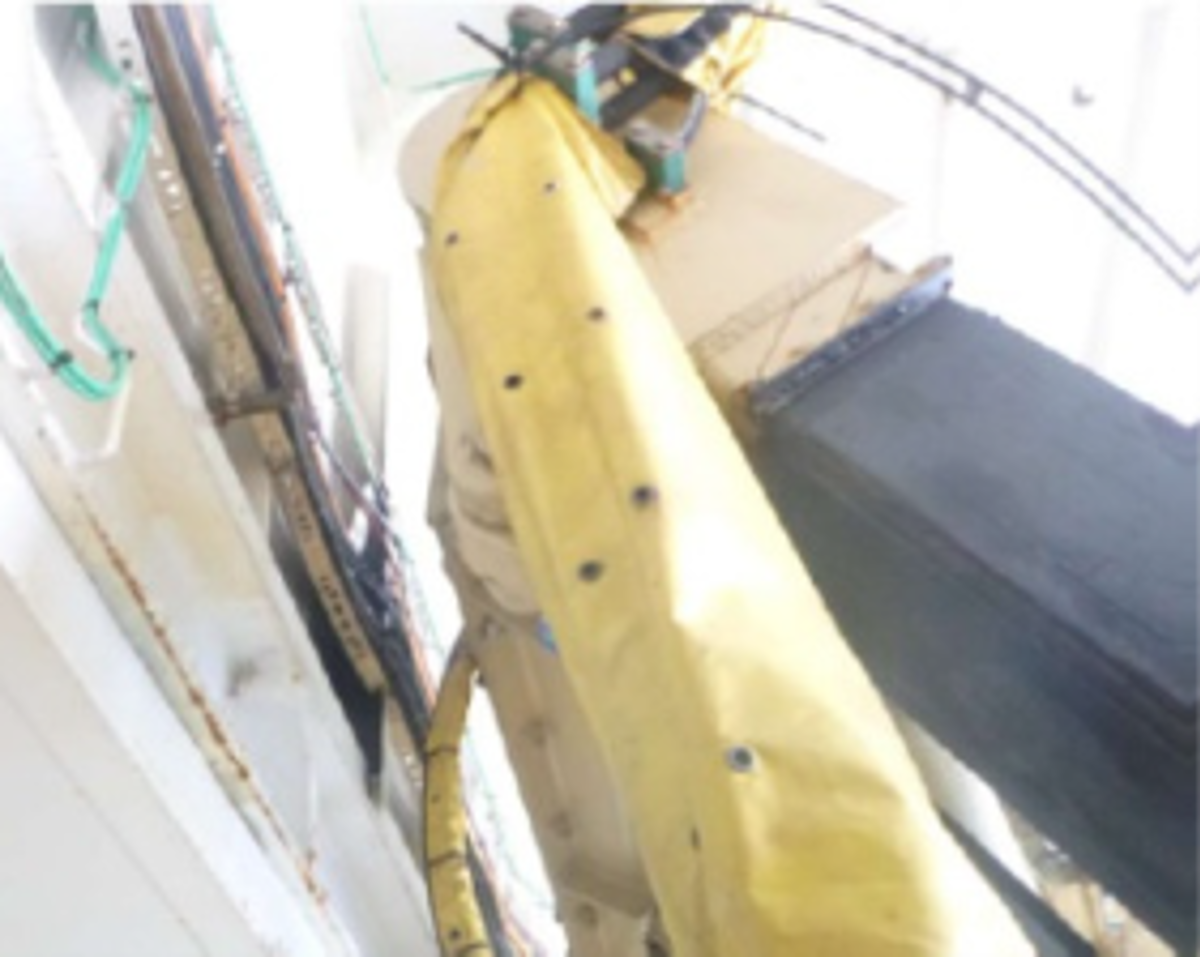Cabling in ROV hanger inadvertently severed by the ROV launch and recovery frame
- Safety Flash
- Published on 22 November 2019
- Generated on 12 February 2026
- IMCA SF 27/19
- 2 minute read
Jump to:
During weekly testing of the vessel emergency firefighting pump, the engineer discovered that he could not start the pump.
What happened?
Initial investigations identified that the electrical cables and hydraulic hoses serving the equipment had been severed.
Further investigation established that the cables and hoses in the ROV hanger had been inadvertently severed by the ROV launch and recovery (LARS) frame which had come into contact with the bulkhead cable tray (yellow structure in second photo).
The impact between the LARS and the bulkhead cable tray was not reported immediately after it happened, possibly because it was not noticed by those involved in the operation of the launch and recovery system.

What lessons were learned?
- When installing and/or operating powered mechanical equipment ensure that the possibility of contact between it, other equipment and fixed structures is identified and mitigated during the project planning phase and thoroughly checked during mobilisation.
- The risk of collision was in fact documented in the task risk assessment; however, this was not translated into actual change to the operating procedures and work instructions, nor to the task itself.

What actions were taken?
- Review of launch and recovery operations and documented risk assessments/operating procedures:
- documents amended where necessary
- one of the ROV crew assigned to monitor the ROV recovery process with particular reference to the proximity of the launch and recovery system frame to the vessel structure.
- documents amended where necessary
- Incident and required actions discussed with those involved in the ROV operations. Employees reminded of their responsibility to speak up if they identify an unsafe act or condition, e.g. damaged equipment and/or services.
- Installation is in progress of a permanent engineered solution to prevent contact between the LARS frame and the vessel structure.
Featured Safety Flashes
-
IMCA SF 25/16
3 October 2016
-
IMCA SF 07/11
19 July 2011
-
IMCA SF 08/12
24 July 2012
IMCA Safety Flashes summarise key safety matters and incidents, allowing lessons to be more easily learnt for the benefit of the entire offshore industry.
The effectiveness of the IMCA Safety Flash system depends on the industry sharing information and so avoiding repeat incidents. Incidents are classified according to IOGP's Life Saving Rules.
All information is anonymised or sanitised, as appropriate, and warnings for graphic content included where possible.
IMCA makes every effort to ensure both the accuracy and reliability of the information shared, but is not be liable for any guidance and/or recommendation and/or statement herein contained.
The information contained in this document does not fulfil or replace any individual's or Member's legal, regulatory or other duties or obligations in respect of their operations. Individuals and Members remain solely responsible for the safe, lawful and proper conduct of their operations.
Share your safety incidents with IMCA online. Sign-up to receive Safety Flashes straight to your email.